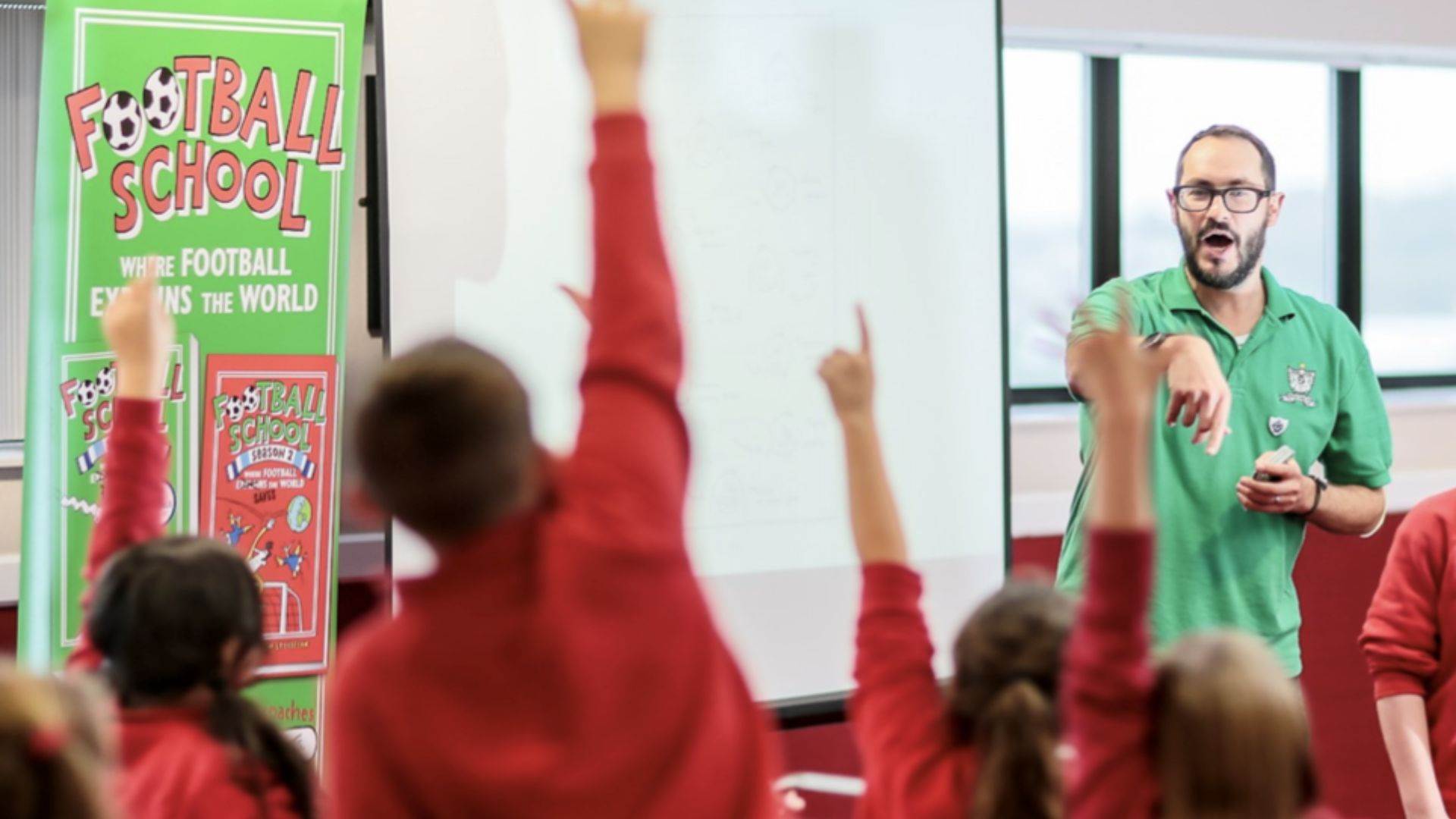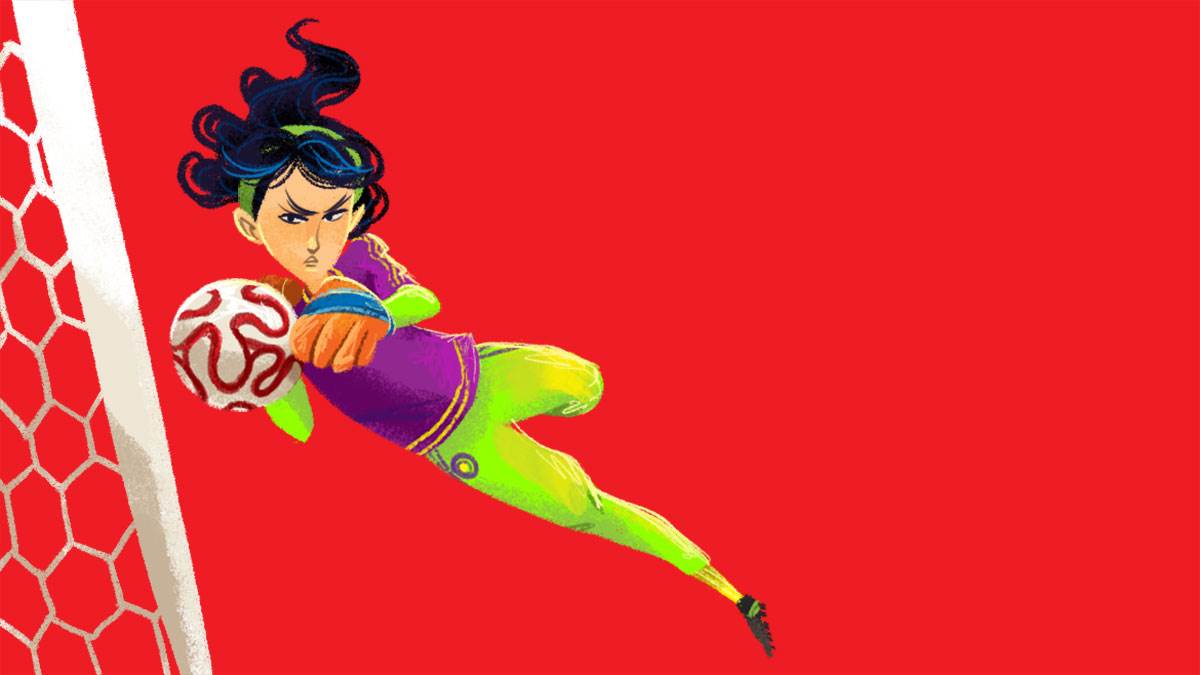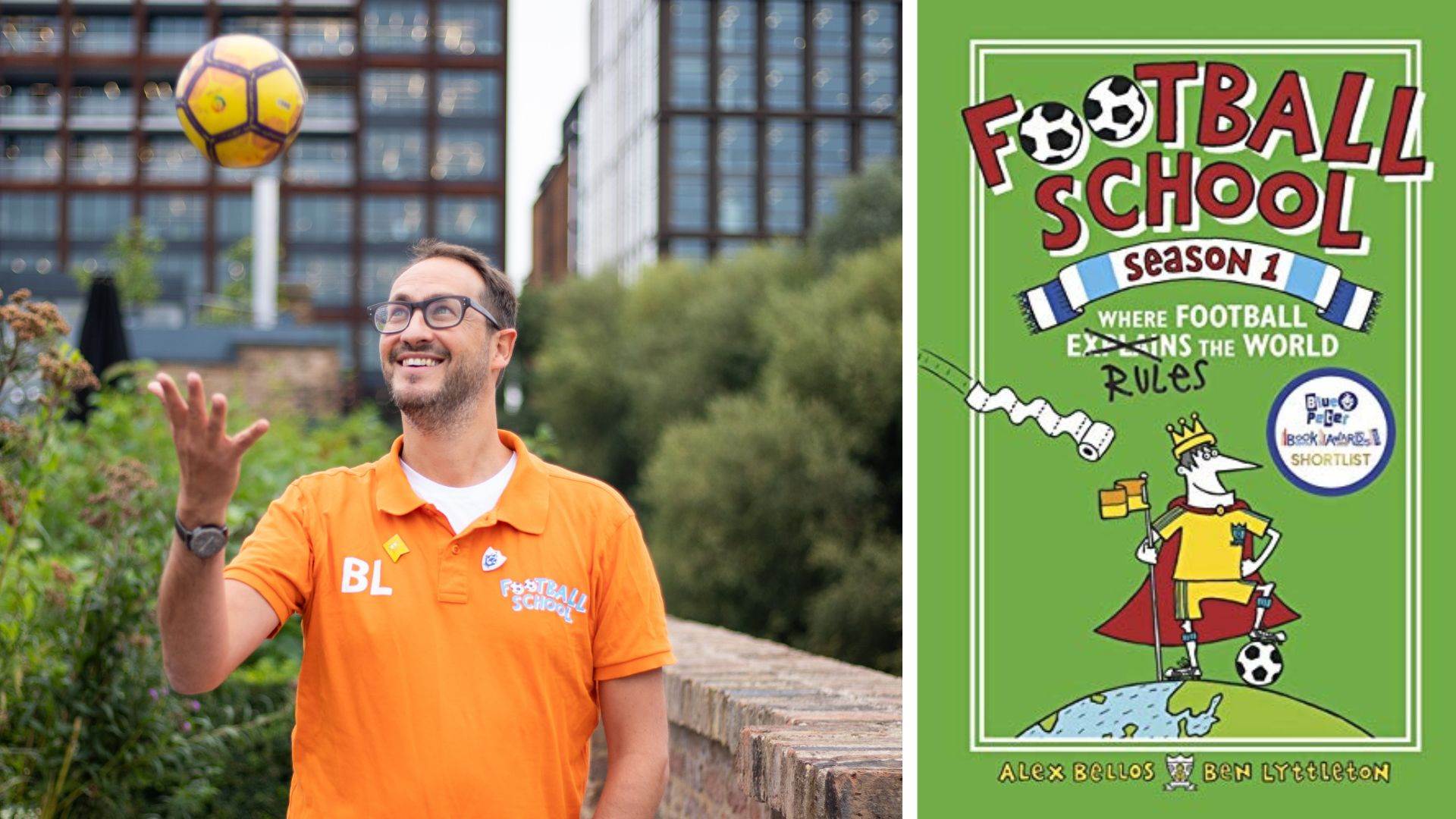How to use the World Cup as a learning tool in the classroom
Published on: 14 November 2022
Football School author Ben Lyttleton shares some tips on how to open up the school curriculum to inspire learning during the World Cup.

As a schoolboy who loved football, the run-up to a World Cup was a thrilling time. I’d look at each group to work out which teams might progress, and plot a pathway to the final. I’d obsess over every team’s kit and flag and wonder why some kits, like Italy’s, contained no colours from their flag. And I’d look at where individual stars played their club football, and work out which fixtures contained players from the same clubs facing each other.
If this all sounds pretty nerdy, then you’re right, it was. At the same time, I was learning. By looking at the groups, I was learning about maths, using a points-per-win system to calculate a league table. My recognition of national flags is far stronger than the average, and my knowledge of obscure cities across the world is purely as a result of following European and global football competitions.
This concept of ‘education by stealth’ was the main reason my friend Alex Bellos and I decided to write the Football School series. We were aware from research that there was a literacy deficit around Key Stage 2 and felt that by tapping into football, a subject that children were already passionate about, they would enjoy reading about football and learning about the world – without even realising it.
 Illustration: Erika Meza
Illustration: Erika Meza
Alex and I believe that football can be a force for good, and using football to open up the school curriculum – at any time, but especially during a World Cup – can inspire children to develop a curiosity about the world and a love of reading.
As the 2022 World Cup kicks off, here are some discussion points around football that teachers could develop into bigger classroom projects...
Terrific Teamwork
Discuss what qualities are required to make the best team possible. What makes a terrific team? Does the best team always need to have the best players? Is winning the only thing that makes a team terrific? What type of captain or coach would you want in your terrific team? What does success look like: do you want to be remembered for sporting excellence or making an impact in some other way?
Match Reporting
There are so many different ways to convey information through writing. Let’s list some of those styles: diary, poem, cartoon, haiku, rap. Now take one moment from this World Cup – maybe an England game, or a dramatic goal – and write about it in as many different ways as possible. This will allow each individual in the group to tap into the creative form that works best for them.
Decision-Making
Football coaches are constantly making big decisions that could have a huge impact on the result. Let’s discuss some dilemmas they may have, and what you would do in that situation. For example; your star striker has missed two open goals in the last two matches. Do you keep them in the team or replace them with someone different? Think about arguments on either side of the debate: how would it affect the player if dropped? Can you be sure the replacement would do better?
Penalty Pressure
The most dramatic part of football is the penalty shoot-out, which only happens when a knock-out match is tied. To win on penalties, your team needs to stay calm under pressure. What other skills do you need to win on penalties? Would it be helpful to practise? How can these skills transfer to our everyday life and help us?
Above all, the World Cup is a celebration of football and an opportunity to use football to explore the whole world. Countries from every continent will be playing, so there’s an open goal if you want to explore the geography or culture of any particular country.
Oh, and the reason Italy wears blue shirts is in honour of its former rulers, the House of Savoy, under whom Italy was unified in 1861. More learning through football! Enjoy the tournament – and keep reading!
 Ben Lyttleton and the cover of Football School
Ben Lyttleton and the cover of Football School
Ben Lyttleton is the co-author of 12 books in the Football School series. You can contact Ben or Alex to visit your school for an assembly or workshop.
Topics: Sport, Features, Teacher tips
You might also like...
Check out our top picks for sports-mad readers!
Fantastic football books
Obsessed with goals, tackles and tactics? Check out these super football books, covering poems, stories, facts and jokes.
Books about sport
Whether you prefer football or cycling, ballet or basketball, there's something for everyone on our list of sporting books, which are perfect for children aged 8-14 years-old.






